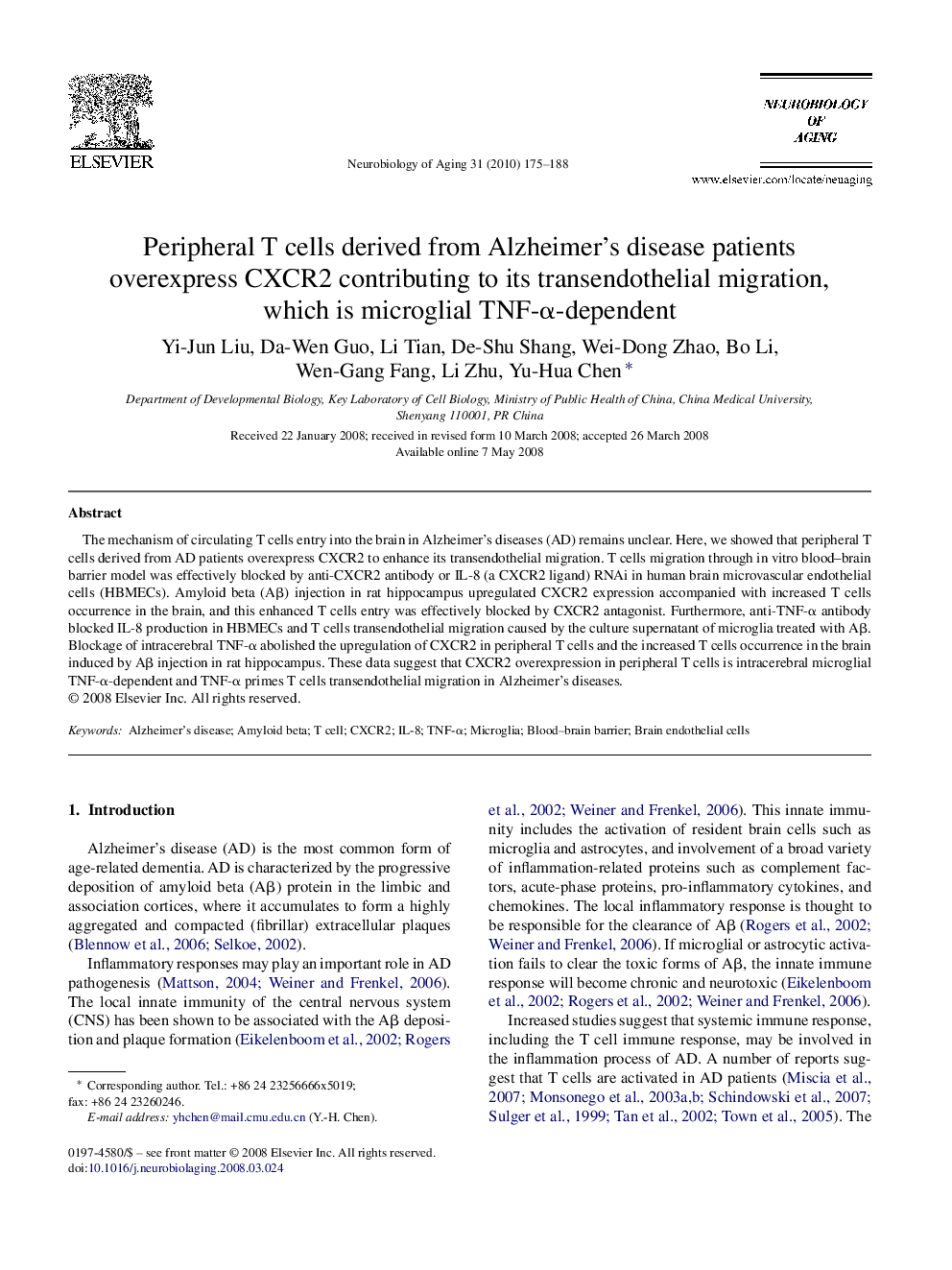| کد مقاله | کد نشریه | سال انتشار | مقاله انگلیسی | نسخه تمام متن |
|---|---|---|---|---|
| 329404 | 1433624 | 2010 | 14 صفحه PDF | دانلود رایگان |

The mechanism of circulating T cells entry into the brain in Alzheimer's diseases (AD) remains unclear. Here, we showed that peripheral T cells derived from AD patients overexpress CXCR2 to enhance its transendothelial migration. T cells migration through in vitro blood–brain barrier model was effectively blocked by anti-CXCR2 antibody or IL-8 (a CXCR2 ligand) RNAi in human brain microvascular endothelial cells (HBMECs). Amyloid beta (Aβ) injection in rat hippocampus upregulated CXCR2 expression accompanied with increased T cells occurrence in the brain, and this enhanced T cells entry was effectively blocked by CXCR2 antagonist. Furthermore, anti-TNF-α antibody blocked IL-8 production in HBMECs and T cells transendothelial migration caused by the culture supernatant of microglia treated with Aβ. Blockage of intracerebral TNF-α abolished the upregulation of CXCR2 in peripheral T cells and the increased T cells occurrence in the brain induced by Aβ injection in rat hippocampus. These data suggest that CXCR2 overexpression in peripheral T cells is intracerebral microglial TNF-α-dependent and TNF-α primes T cells transendothelial migration in Alzheimer's diseases.
Journal: Neurobiology of Aging - Volume 31, Issue 2, February 2010, Pages 175–188